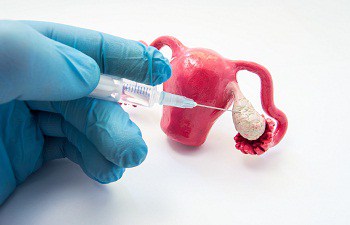Conception, in Women is a complex procedure that involves several steps. These include; hormonal triggers, follicle development, ovulation, etc. Ovulation is an important step in conception, but failure to ovulate or anovulation can cause a failed attempt at being pregnant. Ovulation Induction is a treatment developed for women who suffer from anovulation. In this procedure, women are treated with different fertility drugs depending on their specific etiologic and lifestyle.
According to a survey, 30 to 40% of women face irregularities in their menstrual cycle. Scientifically, every month, the ovaries release an egg, which happens in the middle of the cycle. In order to develop a pregnancy, this egg is fertilized in the tube and is implanted into the uterus, naturally. However, for some women, menstrual cycles are indifferent and irregular, so, for these women, the chances of conception are really low, and they will have to rely on the Ovulation-Induction method.
These women are usually diagnosed with the polycystic ovarian syndrome (PCOS). It is a condition characterized by multiple ovarian cysts and high level of androgen hormones, which causes irregular and absent periods. Some women also face unexplained infertility even after ovulating regularly. Therefore, even these women rely on Ovulation-Induction method because it helps in increasing the odds of conception.
Certain ovulation tests are conducted to confirm the need for Ovulation Induction. It is mostly done by measuring progesterone. Two of the methods used are – Urinary LH test and Ultrasound Cycle Testing. In Urinary LH Tests, the kits detect the preovulatory LH surge that occurs approximately 24 hours before ovulation. For conception, intercourse is necessary within 36 hours of this surge. Another method uses Ultrasound Technology to track the development of the ‘leading follicle’, the one that is likely to contain an egg.
The course of Ovulation-Induction is taken in order to develop a mature follicle, which can be fertilized by having intercourse at the prescribed time or by Artificial Insemination (AI) / Intrauterine Insemination (IUI) for a successful conception. The treatments mostly consist of a course of specially medicated drugs that are orally ingested or are artificially injected. In most cases, this course is also combined with intrauterine insemination (IUI). A normal sperm count of the partner, along with the female having an appropriate size of the uterine cavity. Clomiphene Citrate, also known as Clomid, Letrozole, Gonadotropins, and HCG, also called as Novarel are the most common drugs that are prescribed during the treatment. They are either taken orally or taken as injections for the prescribed amount of time.
Research shows, the pregnancy rate among couples with the woman suffering from infertility, usually ranges between 2% to 10% per month. Ovulation induction treatment has shown a successful pregnancy rate of 10% to 20% per cycle. However, it depends on a woman’s age, diagnosis of infertility, and duration of infertility and lifestyle. Apollo Fertility offers you the best Ovulation-Induction Treatment along with successful results and consultations. To know more, visit your nearest Apollo fertility hospital.
